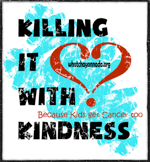Neuroblastoma Facts
- Neuroblastoma is a common and often difficult to treat cancer, the most common cancer in infancy. (UCSF)
- In the United States, about 600 children are diagnosed with neuroblastoma each year. (UCSF)
- It is the most common tumor found in children younger than 1 year of age.
- Childhood cancer is the number one disease killer in children.
- Neuroblastoma is the most common extra cranial solid tumor cancer in children.
- Every 16 hours a child with neuroblastoma dies.
- There is no known cure for relapsed neuroblastoma.
- Nearly 70% of those children first diagnosed with neuroblastoma have disease that has already metastasized or spread to other parts of the body. When disease has spread at diagnosis and a child is over the age of 2, there is less than a 30% chance of survival.
Childhood Cancer Facts
- There are 15 children diagnosed with cancer for every one child diagnosed with pediatric AIDS. Yet, the U.S. invests approximately $595,000 for research per victim of pediatric AIDS and only $20,000 for each victim of childhood cancer.
- The National Cancer Institute’s (NCI) federal budget was $4.6 billion. Of that, breast cancer received 12%, prostate cancer received 7%, and all 12 major groups of pediatric cancers combined received less than 3%.
- The American Cancer Society spends less than 70 cents of each 100 dollars raised on childhood cancer.
- Cancer kills more children than any other disease, more than Asthma, Cystic Fibrosis, Diabetes and Pediatric AIDS combined.
- Sadly, over 2,300 children with cancer die each year.
- Every school day 46 children are diagnosed.
- 1 in 330 children will have the disease by age 20.
- Cancers in very young children are highly aggressive and behave unlike malignant diseases at other times in life.
- 80% of children have metastasized cancer at the time of their diagnosis. At diagnosis, only 20% of adults with cancer show evidence that the disease has spread or metastasized.
- Detecting childhood cancers at an early stage, when the disease would react more favorably to treatment, is extremely difficult.
- Cancer symptoms in children – fever, swollen glands, anemia, bruises and infection – are often suspected to be, and at the early stages are treated as, other childhood illnesses.
- Even with insurance coverage, a family will have out-of pocket expenses of about $40,000 per year, not including travel.
- Treatment can continue for several years, depending on the type of cancer and the type of therapy given.
What Causes Childhood Cancer?
- Every family is potentially at risk.
- In almost all cases, childhood cancers arise from non-inherited mutations (or changes) in the genes of growing cells.
- As these errors occur randomly and unpredictably, there is currently no effective way to predict or prevent them.
- Most adult cancers result from lifestyle factors such as smoking, diet, occupational hazards and exposure to other cancer causing agents.
Cancer Research Funding
- Nationally, childhood cancer is 20x more prevalent than pediatric AIDS.
- Pediatric AIDS receives 4x the funding that childhood cancer receives.
- In one month there are 2x as many deaths from childhood cancer as pediatric AIDS for the entire year.
Pediatric Cancer Foundations You Should Know and Love
People Against Childhood Cancer
Children’s Neuroblastoma Cancer Foundation
The Neuroblastoma and Medulloblastoma Translational Research Consortium


